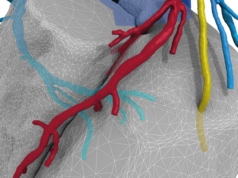
CeloNova BioSciences has announced one-year clinical trial results from the eCOBRA post-market study of its Cobra PzF nano-coated stent. The clinical trial results demonstrated 4.3% target lesion revascularisation, 0.3% late stent thrombosis and 8.6% major adverse cardiovascular events in patients at high risk for bleeding and thrombosis. The average age of patients was 76 years old.
Additionally, according to a press release, 30% of patients studied were on oral anticoagulant therapy, and 48% had non–ST-segment elevation myocardial infarction (NSTEMI) or ST-segment elevation myocardial infarction (STEMI) at clinical presentation. eCOBRA is a prospective, consecutively enrolled, observational, multicentre, all-comers study comprised of 1,026 patients across 17 centres, including patients with stable angina and acute coronary syndrome. The study is designed to evaluate the safety and effectiveness of the Cobra PzF stent in patients undergoing treatment of de novo coronary lesions where a drug-eluting stent is typically not indicated.
Luc Maillard (Clinique Axium, Aix-en-Provence, France), principal investigator for the eCOBRA trial, says: “The data from this trial provides further evidence that COBRA PzF NCS is a safe and effective treatment, particularly in complex patients with heart disease. Being able to provide an effective therapy that meets the needs of patients who are at higher risk of bleeding is of great clinical value.”
Jason Cone, CEO of CeloNova, notes: “I am very excited by eCOBRA’s outstanding results as they support COBRA PzF NCS’ ability to offer an individualized treatment option for a greatly underserved population of high-risk patients. We look forward to further exploring its safety and efficacy in our first-of-its-kind COBRA REDUCE trial with ultra-short, 14-day DAPT.”
The COBRA REDUCE trial is the world’s first and only randomized control trial to assess 14-day DAPT after percutaneous coronary intervention (PCI) as compared to FDA-approved DES with 3 or 6-months of DAPT in patients on oral anticoagulant. For more information about this ongoing global clinical trial, please visit ClinicalTrials.gov.










